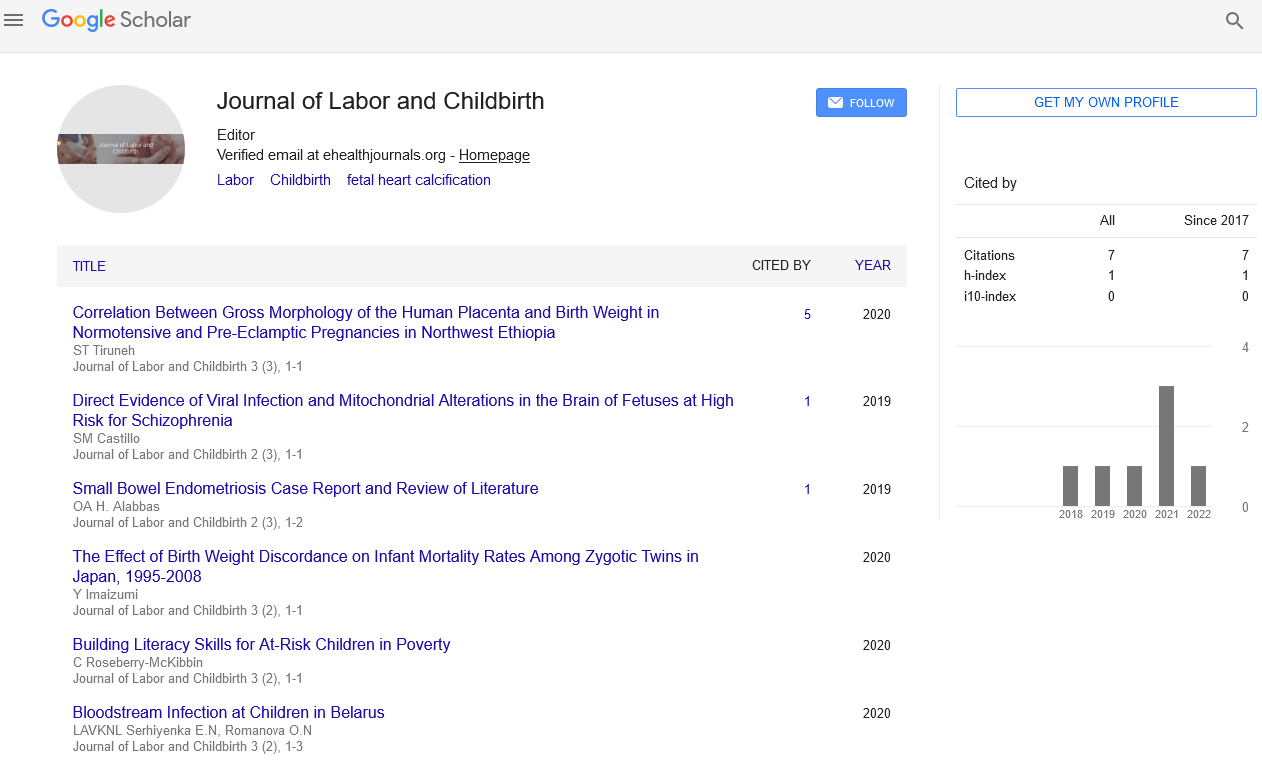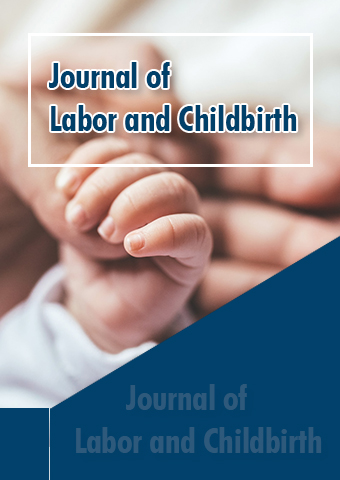Perspective - Journal of Labor and Childbirth (2024) Volume 7, Issue 1
Evaluating Child Development in the Context of Maternal Methadone Maintenance Treatment during Pregnancy
- Corresponding Author:
- Bzikha Reda
Department of Child Welfare,
Liana University,
Lyon,
France
E-mail: Bzikhareda@hotmail.com
Received: 18-Jan-2024, Manuscript No. jlcb-24-125343; Editor assigned: 23-Jan-2024, PreQC No. jlcb-24-125343 (PQ); Reviewed: 06- Feb-2024, QC No. jlcb-24-125343; Revised: 15-Feb-2024, Manuscript No. jlcb-24-125343 (R); Published: 23-Feb-2024, DOI: 10.37532/ jlcb.2024.7(1).188-190
Introduction
Pregnancy is a critical period in which a mother’s health directly influences the wellbeing of the developing fetus. Unfortunately, some expectant mothers face the challenge of substance use disorders, including opioid addiction. Methadone Maintenance Treatment (MMT) is a common approach to managing opioid dependence during pregnancy. This article explores the impact of maternal methadone maintenance treatment on the development of children, examining both the benefits and potential challenges associated with this intervention.
Numerous studies have attempted to examine the developmental outcomes of children born to mothers undergoing MMT. Some research suggests that MMT may reduce the risk of certain adverse outcomes associated with illicit opioid use, such as preterm birth and low birth weight. However, other studies indicate potential cognitive and behavioral challenges in children exposed to methadone during gestation.
Description
Understanding methadone maintenance treatment during pregnancy
Methadone, a synthetic opioid agonist, is often prescribed to pregnant women with opioid use disorders to reduce withdrawal symptoms and cravings. Methadone maintenance treatment aims to provide a stable environment for both the mother and the developing fetus, minimizing the risks associated with untreated opioid addiction. While MMT has proven effective i n harm reduction, c oncerns h ave been raised about its potential impact on child development.
The challenges of substance use during pregnancy
Substance use during pregnancy, including opioids, poses risks to both the mother and the developing child. Opioid exposure in utero can lead to complications such as Neonatal Abstinence Syndrome (NAS), premature birth, low birth weight and developmental issues. The challenge for healthcare providers is to balance the benefits of managing maternal opioid dependence with the potential risks to the child’s development.
Benefits of maternal methadone maintenance treatment
Reduced maternal substance use: One of the primary benefits of MMT during pregnancy is the reduction of maternal substance use. By stabilizing opioid dependence, methadone helps pregnant women avoid the harmful effects of withdrawal and the potential dangers associated with continued opioid use.
Improved prenatal care: Women undergoing MMT are often closely monitored by healthcare professionals, leading to improved prenatal care. Regular check-ups, counseling and support services contribute to healthier pregnancies, reducing the risk of complications for both the mother and the baby.
Stabilized home environment: MMT can contribute to a more stable home environment for expectant mothers. With the support of healthcare providers and substance abuse counselors, women in MMT may be better equipped to address underlying issues contributing to their addiction, creating a more nurturing environment for their children.
Challenges and concerns
Neonatal Abstinence Syndrome (NAS): One of the primary concerns associated with maternal MMT is the potential development of neonatal abstinence syndrome in infants. NAS occurs when a newborn experiences withdrawal symptoms due to exposure to opioids in utero. While methadone is considered a safer alternative to illicit opioids, NAS remains a challenge that requires careful management.
Long-term cognitive and behavioral effects: Studies on the long-term cognitive and behavioral effects of prenatal exposure to methadone are limited. Some research suggests potential developmental delays in areas such as attention, executive functioning and emotional regulation. However, distinguishing the impact of methadone from other environmental factors can be challenging.
Social and environmental factors: Children born to mothers undergoing MMT may face additional challenges associated with the social and environmental circumstances surrounding maternal addiction. Factors such as poverty, unstable housing and parental stress can contribute to developmental difficulties, complicating the assessment of methadone’s specific impact.
Research findings and methodological considerations
Study design and limitations: Evaluating the developmental outcomes of children exposed to methadone during pregnancy requires rigorous research methodologies. Longitudinal studies tracking children from birth through adolescence are crucial to understanding the potential longterm effects. However, such studies often face challenges in terms of participant retention, confounding variables and ethical considerations.
Cognitive and behavioral assessments: Researchers employ various cognitive and behavioral assessments to measure the development of children exposed to methadone in utero. These assessments include measures of intelligence, language development and socialemotional functioning. Interpretation of these findings must account for the multifaceted nature of child development and consider potential confounding variables.
Parental and environmental influences: To accurately assess the impact of maternal MMT on child development, researchers must consider the broader context, including the influence of parenting styles, home environment and community support. It is essential to differentiate between the effects of methadone exposure and other factors that may contribute to developmental outcomes.
Conclusion
In conclusion, the evaluation of child development in the context of maternal methadone maintenance treatment during pregnancy is a complex and nuanced task. While MMT offers significant benefits, such as reducing maternal substance use and improving prenatal care, concerns about neonatal abstinence syndrome and potential long-term cognitive and behavioral effects persist. Research in this field requires careful consideration of study design, methodological limitations and the influence of various factors on child development. It is crucial to approach this topic with sensitivity, recognizing the challenges faced by mothers undergoing MMT and the potential impact on their children.
Balancing the benefits of MMT in supporting maternal health and preventing complications associated with opioid use against potential risks to the child requires a careful and individualized approach. Longitudinal studies, neuroimaging research and comprehensive assessments of developmental milestones are necessary to gain a more thorough understanding of the impact of maternal methadone use on child development. As our understanding of maternal MMT continues to evolve, ongoing research and multidisciplinary collaboration are essential to inform healthcare practices, support services and policies that promote the well-being of both mothers and their children. By addressing the complex interplay of biological, social and environmental factors, we can strive to enhance the developmental outcomes of children born to mothers undergoing methadone maintenance treatment.

